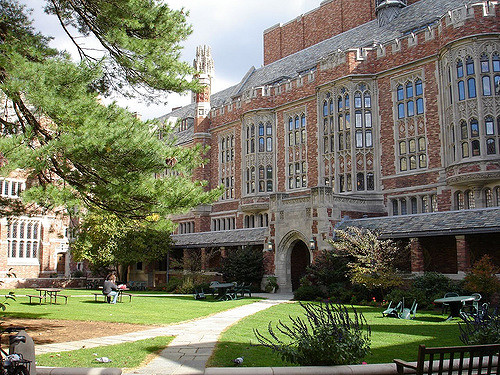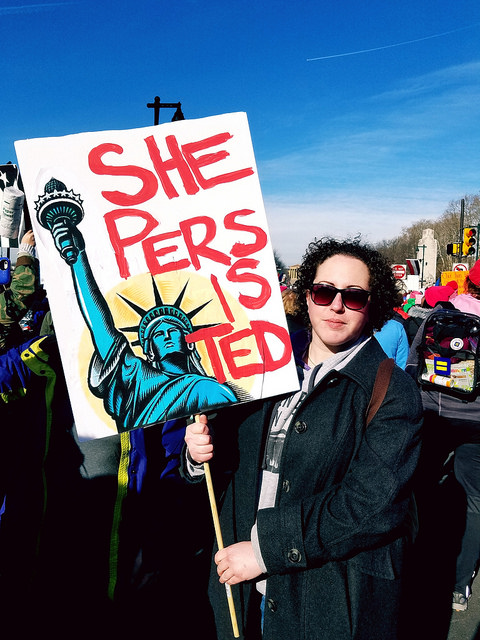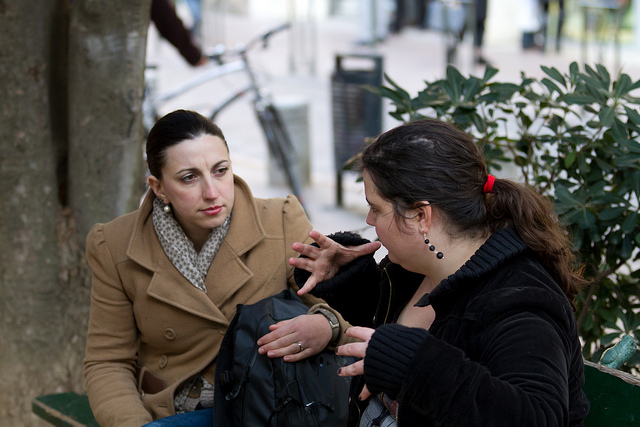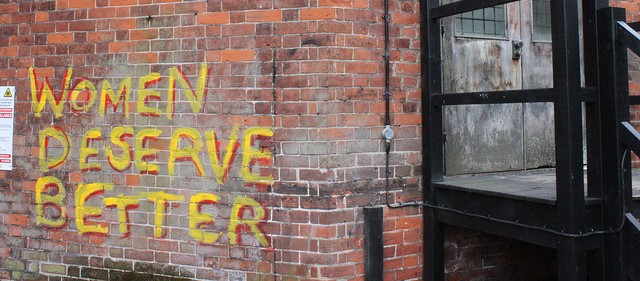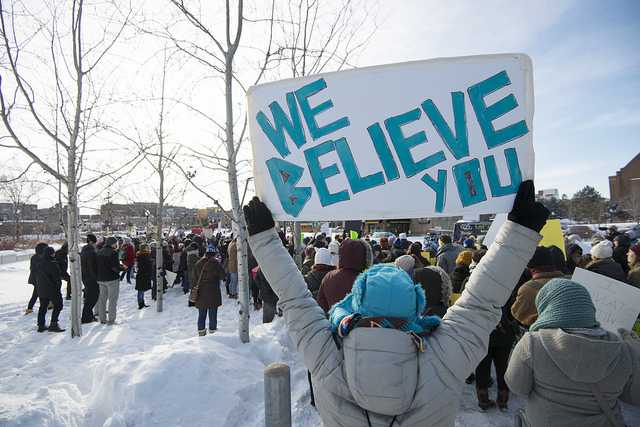
Since Surviving R. Kelly aired on Lifetime, we’ve seen a rise of activists led by Black women calling for the #MuteRKelly campaign, which dissuades music labels, radio stations, and other music platforms from selling, distributing, and promoting R. Kelly’s music. But despite the recent backlash, fans across the country continue to show their support for the R&B star. While some attempt to separate their feelings about the art from the artist, others dismiss Black women’s claims of R. Kelly’s abusive behaviors altogether. Much of this support comes from other Black R. Kelly fans. The documentary and the subsequent controversy also shed important light on an issue that is often missing from the public sphere: the plight of Black women and girls who experience sexual violence. Saida Grundy’s recent piece in The Atlantic helps us break down how Black support for R. Kelly remains despite the shocking revelations from Black women.
Rape myths have long obscured sexual victimization by suggesting that “real rape” occurs by strangers in a dark alley, women who dress “proactively” and show signs of intoxication “ask for it,” and men are not responsible for assault because they are unable to control their sexual impulses. According to Grundy, Black survivors and victims encounter a distinct set of racialized rape myths both from the broader public and from members of their own racial/ethnic community.
“With racialized rape myths, people compound untrue narratives about sexual assault with their own self-interests. For example, some African Americans might think defending Kelly is a way to push back against the history of false rape allegations from white women against black men — allegations that functioned as assaults on black communities, as they were commonly used by whites to justify the lynching of African American men during the Jim Crow era.”
Grundy echoes work by Black feminist scholars, such as Beth Richie, who argue that Black women and girls experience a “trap of loyalty,” where they are expected to resist racism against Black men by excusing or altogether denying abusive behaviors, even at the risk of concealing and enduring their own abuse. Furthermore, recent reports illustrate how Black girls are viewed as more adult and consequently less innocent than white girls. These myths surrounding innocence create interlocking gendered and racialized messages about Black girls’ and women’s sexuality that suggest they are “fast,” hypersexual, and deserving of men’s and boys’ unwanted advances towards them. In the age of #MeToo, disrupting racialized rape myths and the broader rape culture allows us to understand the race- and gender-specific mechanisms that damage Black girls’ and women’s credibility and impede disclosure and reporting on their experiences with sexual violence.


